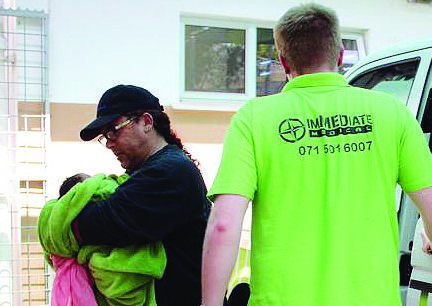
Child abandonment remains a legacy in a context of social and economic inequalities and patriarchy in society.
Studies have suggested that some key reasons for abandonment include a sense of desperation because of abject poverty and unemployment, the “breakdown” of the family, HIV/Aids, and stigmatisation because of cultural beliefs.
This is often worsened by poor access to sexual and reproductive health services (SRH), education, as well as society’s restrictive gender norms, discrimination in employment and lack of support systems.
These compounding factors create an environment in which many women are not supported in pregnancy and raising in a child.
Many women who are sexually active want to take action to prevent pregnancies, yet struggle to gain access to SRH services that could help them choose the contraceptive method best suited to their needs.
Reports of contraceptive stockouts are increasingly becoming widespread and family planning services around the country are compromised.
Each year thousands of women and young girls end up becoming pregnant when they do not want to be or do not plan to be.
More than 30% of adolescent girls and young women between the ages of 15 and 24 have an unmet need for contraceptives. It is worse for girls in rural communities.
A number of women, who become pregnant, do not want to continue with it but are scared of being ostracised and the stigma associated with an abortion.
In a 2014 master’s thesis, titled Sad, Bad, and Mad: Exploring child abandonment in South Africa, child protection activist Dee Blackie offers insights.
Her research into child abandonment unsurprisingly surfaced while looking into abortion as a lens through which to understand child abandonment.
Abortion stigma continues to be rife, despite abortion being legal.
Women and girls who choose this option are labelled primarily as “immoral” rather than women who are making informed and responsible choices.
From staff in hospitals to members of their communities, women continue to fear judgement for wanting to end their pregnancy.
Illegal, back-street, unsafe and botched abortions remain a challenge with 10% of maternal deaths resulting from septic abortions.
Gender-based violence is another key factor that leads to child abandonment in our communities.
Blackie’s research found that rape, incest, relationships with “blessers or sugar daddies” or abandonment of the women themselves by the child’s father were key factors.
It’s tragic and yet no surprise. Denial of paternity is cited as a reason for women presenting late for an abortion, as the person with whom they conceived the baby refuses to be accountable or available to be a father.
There is a need for a mindshift to ensure our policy provisions are implemented within health services so that women can have access to crucial SRH services, including fertility planning, contraception and safe abortions.
Tracey Morison’s 2013 research paper, Moving from reproductive choice to reproductive justice, reflects on the reality that having SRH rights does not always translate into women’s ability to exercise them.
It emphasises the need to examine what prevents women from exercising their rights and making decisions that are in line with their fertility preferences and desires.
Hence the need to refocus and look through the lenses of reproductive justice, readdressing the issue of access by understanding the dynamics played by race, class and gender in each woman’s particular context.
All facets of society have a responsibility towards improving access to this comprehensive bouquet of SRH services.
The media needs to stop sensationalising women at fault for abandoning babies and work towards constructive messaging that does not blame women.
The government and civil society need to work towards increasing advocacy, public education and awareness of these services.
Empowering women with accurate information helps them to make informed decisions regarding their body, health and wellbeing.
This includes providing information on their reproductive and legal rights, as well as on how to access SRH services, including easy identification of hospitals and health clinics designated as termination of pregnancy sites.
Stigma must be addressed to strengthen the possibility of women and young girls easily accessing accurate information about contraception and abortion services.
The government needs to work with communities to tackle socioeconomic factors such as poverty, unemployment and gender-based violence.
Although some unsupported pregnancies are a result of the lack of information about and poor access to SRH services, others are a result of the stark reality of engrained patriarchy and the sexual violence that occurs against women and young girls.
When women do not have access to safe abortion services, they will go to informal providers, risking their health.
Alone and vulnerable they will complete a late abortion.
Often these women lack access to water and sanitation, resulting in women not being able to care for themselves and dispose of the foetus.
Women who do not have access to land are forced to dispose of the foetus in circumstances that are risky and unsafe, with some being arrested for child abandonment.
These realities contribute to a context of reproductive injustice in which it is women who have been abandoned by society and forced into desperate circumstances by the failure of the state.
We need to prioritise this issue so that women do not feel abandoning their babies is their only option.
We need to do it now.
Stevens is a director at the Sexual Reproductive Justice Coalition




 Publications
Publications
 Partners
Partners








